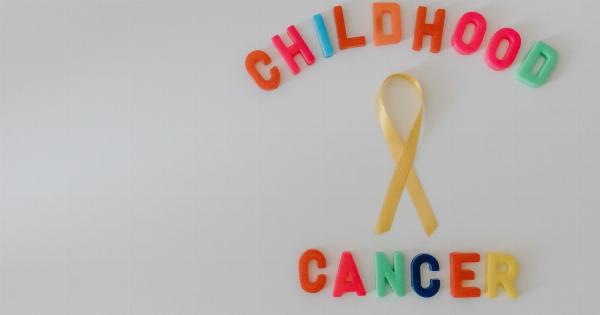Childhood cancer is a devastating diagnosis that affects not only the child but the entire family. The journey can be overwhelming, emotionally draining, and physically demanding.
However, with the right support and a united front, families can find the strength to fight childhood cancer together. By coming together as a family, they can provide the love, care, and stability needed during this challenging time.
1. Open Communication
One of the essential aspects of fighting childhood cancer as a family is open and honest communication. It is crucial to encourage family members to express their feelings, fears, and concerns.
Creating a safe environment where everyone feels heard and understood can help reduce anxiety and strengthen the family bond.
2. Creating a Support System
A support system is vital when fighting childhood cancer. Reach out to extended family, friends, neighbors, and even support groups who can offer emotional support, practical help, and guidance throughout the journey.
By leaning on others, families can share the load and find comfort and encouragement.
3. Establishing Routines
During times of crisis, establishing routines provides stability for the child and the family. Maintaining regular daily activities, such as mealtimes and bedtime routines, helps create a sense of normalcy amidst the chaos.
Routines also keep the family organized and can help reduce stress and anxiety for everyone involved.
4. Prioritizing Self-Care
Caring for a child with cancer can be all-consuming, leaving little time for self-care. However, it is crucial for parents and caregivers to prioritize their own well-being.
Taking breaks, seeking emotional support, engaging in hobbies, and ensuring proper rest and nutrition are essential for maintaining the physical and mental resilience needed to support a child with cancer.
5. Educating and Empowering the Family
Understanding the nature of childhood cancer and treatment options is essential for the entire family. Educating themselves about the diagnosis, treatment protocols, and potential side effects empowers parents and caregivers to make informed decisions.
It also helps siblings and other family members comprehend what the child is going through and how they can offer support.
6. Supporting Siblings
Siblings of children diagnosed with cancer may face unique challenges. They may experience feelings of neglect, jealousy, or confusion.
It is essential to provide them with age-appropriate information about the diagnosis and include them in discussions and decision-making. Additionally, finding support groups or counseling services specialized in helping siblings cope can be beneficial.
7. Flexibility and Adaptability
The journey of fighting childhood cancer is unpredictable. Treatment plans may change, unexpected complications might arise, and emotions can run high. Therefore, it is essential for families to be flexible and adaptable.
Being prepared for unforeseen circumstances and adjusting expectations can help reduce stress and foster resilience.
8. Finding Moments of Joy
While the focus during this time is on the child’s health, it is crucial to find moments of joy and celebration as a family.
Simple activities like movie nights, game evenings, or outings can provide a welcome respite from the challenges of treatment. Creating positive memories and enjoying quality time together helps strengthen the family bond and promote a sense of normalcy.
9. Seeking Professional Help
Caring for a child with cancer can be emotionally and mentally taxing for the entire family. It is essential to recognize when additional support is needed and to seek professional help when necessary.
Counseling services, support groups, and therapists specializing in childhood cancer can provide valuable guidance and assistance in navigating the emotional complexities associated with the journey.
10. Celebrating Milestones and Victories
Throughout the cancer journey, every milestone and victory counts. Celebrating these accomplishments as a family instills hope, motivation, and positivity.
Whether it is completing a round of chemotherapy or reaching a specific treatment goal, acknowledging and rejoicing in these moments can boost morale and provide strength to face the challenges that lie ahead.






























